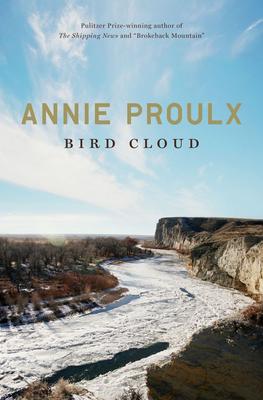 Anyone who loved Annie Proulx’s “Shipping News” will know her as a versatile writer of novels, short stories and non-fiction.
Anyone who loved Annie Proulx’s “Shipping News” will know her as a versatile writer of novels, short stories and non-fiction.
“Bird Cloud” is her first non-fiction in more than 20 years. The title refers to the cloud in the shape of a bird that hung over a piece of property in the wilds of Wyoming that Proulx fell in love with and knew she had to buy. This book is the account of her acquiring 640 acres of Wyoming wetlands and prairie as well as 400-foot cliffs that plunged down to the North Platte River. It also tells us a lot about Proulx herself, the adventures that led to her stories, the constant moving, setting up house, having three sons and, in this book, hoping to find that elusive perfect spot to write, with room for thousands of books, guests, and writing tables.
Her chapters give a rich picture of the wild life all around her, the bird life: she sees pelicans, bald eagles, golden eagles, great blue herons, ravens, blue birds,harriers, kestrels, all of which she watches closely for days on end. There is a chapter on the elk, deer and antelope that remind her of the British hunters who discovered the wealth of game in the New World and greedily killed “eighteen stags in ten days’ stalking” and “easily obtained our limit of 800 brace of grouse and blackgame” – finally destroying the game in certain areas.
She tells of the Indian tribes that went back in time and even finds traces of their implements on her land. She writes: “Running through everything these people thought or knew, like the vast root systems of grasses that extend deep beneath the surface, were spiritual filaments that guided behaviour and nourished rich mythologies.”
She also gives some of her own background, interesting to Canadians as her ancestors came from Normandy to Quebec with records of one ,Jean Proulx ,marrying in Quebec City in l673. But this is mainly the story of challenges in building a house in the wild and stormy country that even Annie Proulx admits may not be the perfect house when winter completely closes down her road of entry. A brave, candid, book.
Review by Anne McDougall